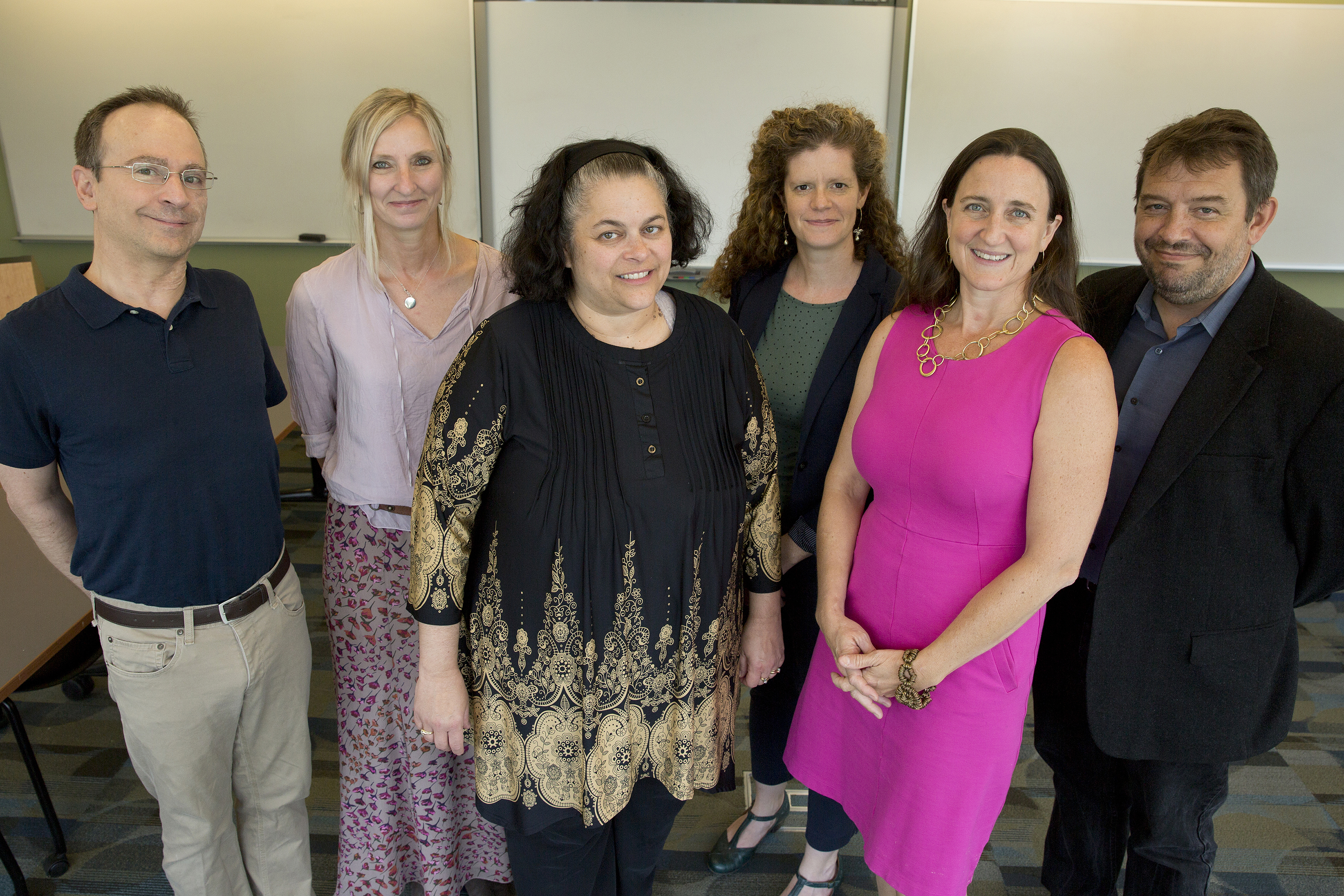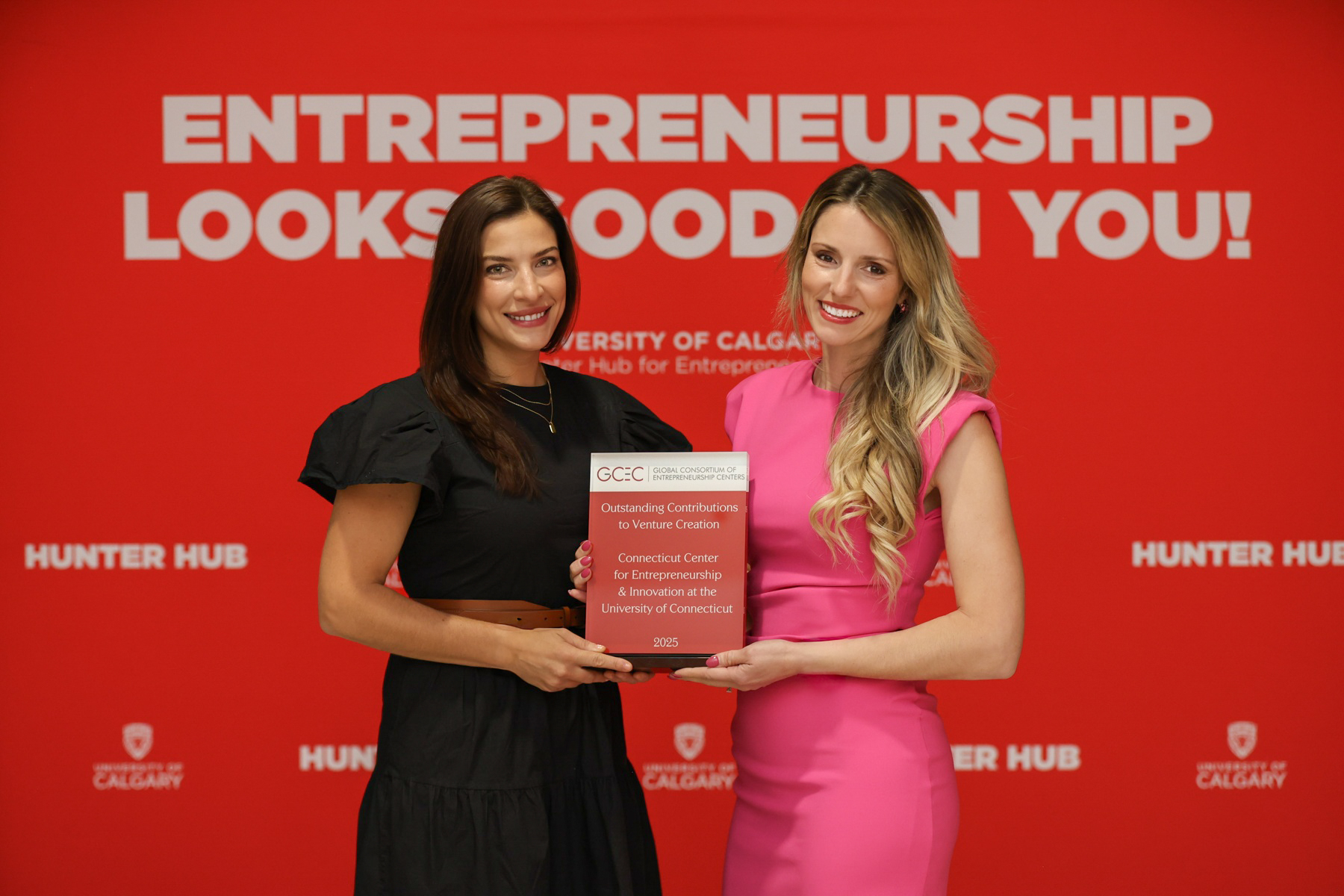The National Science Foundation recently awarded an interdisciplinary group of UConn researchers $3 million for their project exploring the science of learning.
The five-year grant, titled “Science of learning, from neurobiology to real-world application: a problem-based approach,” is one of 17 totaling $51 million awarded nationwide in the NSF Research Traineeship program, across all fields supported by the National Science Foundation. The NRT program aims to develop transformative models for graduate education in science, technology, engineering, and mathematics (STEM) fields.
Following on the success of the 2012 Integrative Graduate Education and Research Traineeship grant in the science of language at UConn, the project, which begins Aug. 1, will train 50 students, including 25 Ph.D. fellows.
The researchers have dubbed the program “Science of Learning and Art of Communication,” or SLAC. Drawing on subfields of cognitive science and neuroscience ranging from genetics to behavioral neuroscience, linguistics, education, psychology, and speech-language-hearing sciences, graduate students and their mentors will work toward developing new, team-based, interdisciplinary approaches to learning. Teams will work at scales ranging from genes and cells to neural networks, behavior, and practical learning settings like classrooms.
The program will also be accompanied by training in effective communication for audiences ranging from specialist peers to the general public, says James Magnuson, professor of psychological sciences and principal investigator for the project.
“From their first day in the program, students will face the challenge of how to clearly and effectively share ideas without assuming prior knowledge or relying on technical jargon,” Magnuson says. “This skill not only enables excellence in research, but empowers trainees to become ambassadors for their work to society as a whole.”
Students will take part in an intensive one-year graduate seminar on the science of learning and the challenge of communicating their research to audiences ranging from specialist peers to school children, drawing on techniques from the performing arts and new approaches using digital media. In a hands-on practicum, they will develop skills crucial to academic and nonacademic careers that are often absent in graduate education, Magnuson says, including project design and management, budgeting and resource allocation, and external communications.
Faculty-student research interest groups will serve as brainstorming launch pads for new scientific challenges and research proposals.
The program will also promote diversity in academic and industry careers that require advanced training by prioritizing recruitment and retention.
The project team comprises:
- James Magnuson, professor of psychological sciences, College of Liberal Arts and Sciences (principal investigator)
- William Snyder, professor of linguistics, College of Liberal Arts and Sciences (co-principal investigator)
- Betsy McCoach, professor of educational psychology, Neag School of Education (co-principal investigator)
- Stormy Chamberlain, assistant professor of genetics and genome sciences, UConn Health (co-principal investigator)
- Timothy Miller, visiting assistant professor, School of Fine Arts (co-principal investigator)
- Scott Brown, professor of educational psychology, Neag School of Education
- Marie Coppola, associate professor of psychological sciences and linguistics, College of Liberal Arts and Sciences
- Inge-Marie Eigsti, associate professor of psychological sciences, College of Liberal Arts and Sciences
- Holly Fitch, professor of psychological sciences, College of Liberal Arts and Sciences
- Emily Myers, associate professor of speech, language & hearing science and psychological sciences, College of Liberal Arts and Sciences
All team members are also associated with the Connecticut Institute for the Brain and Cognitive Sciences.



